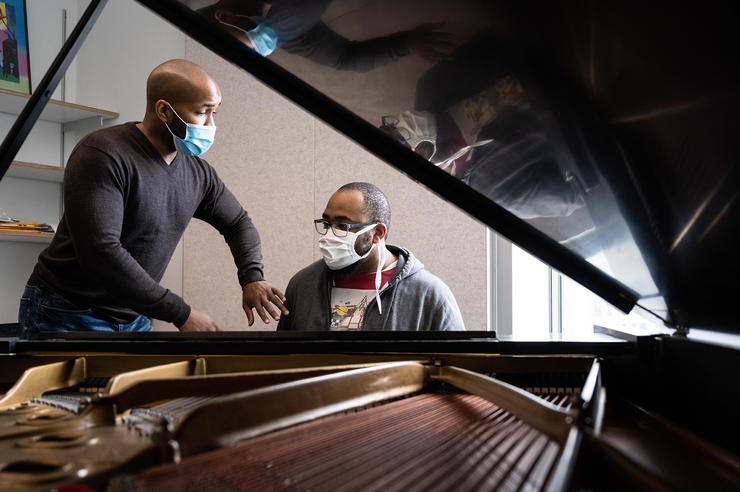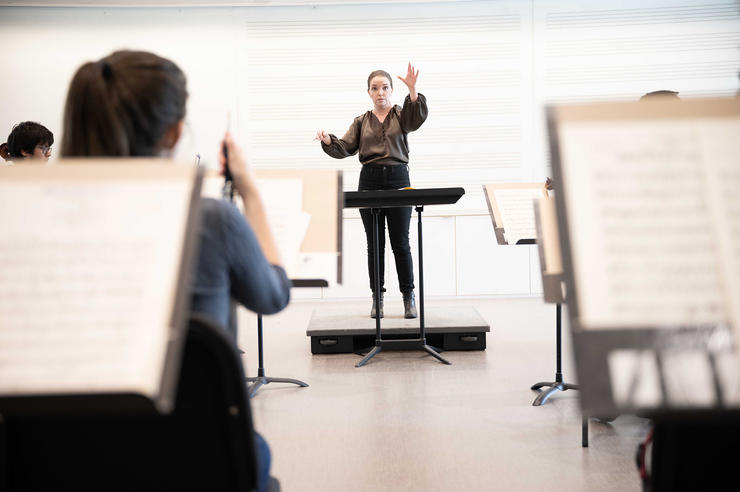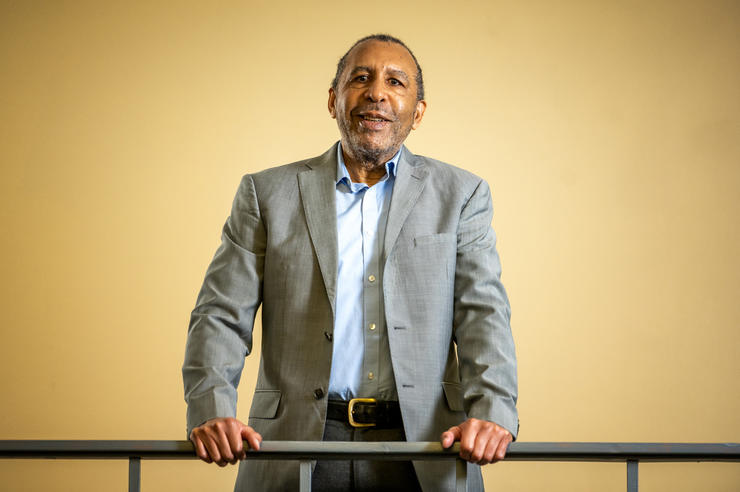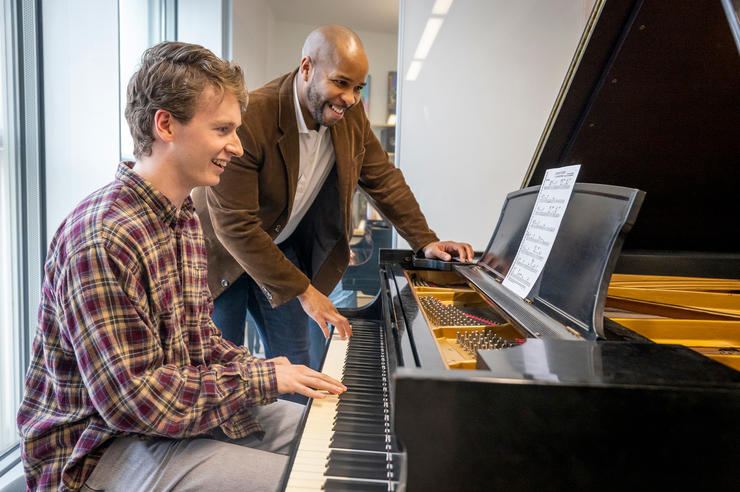Opera channels creativity of jazz studies professor
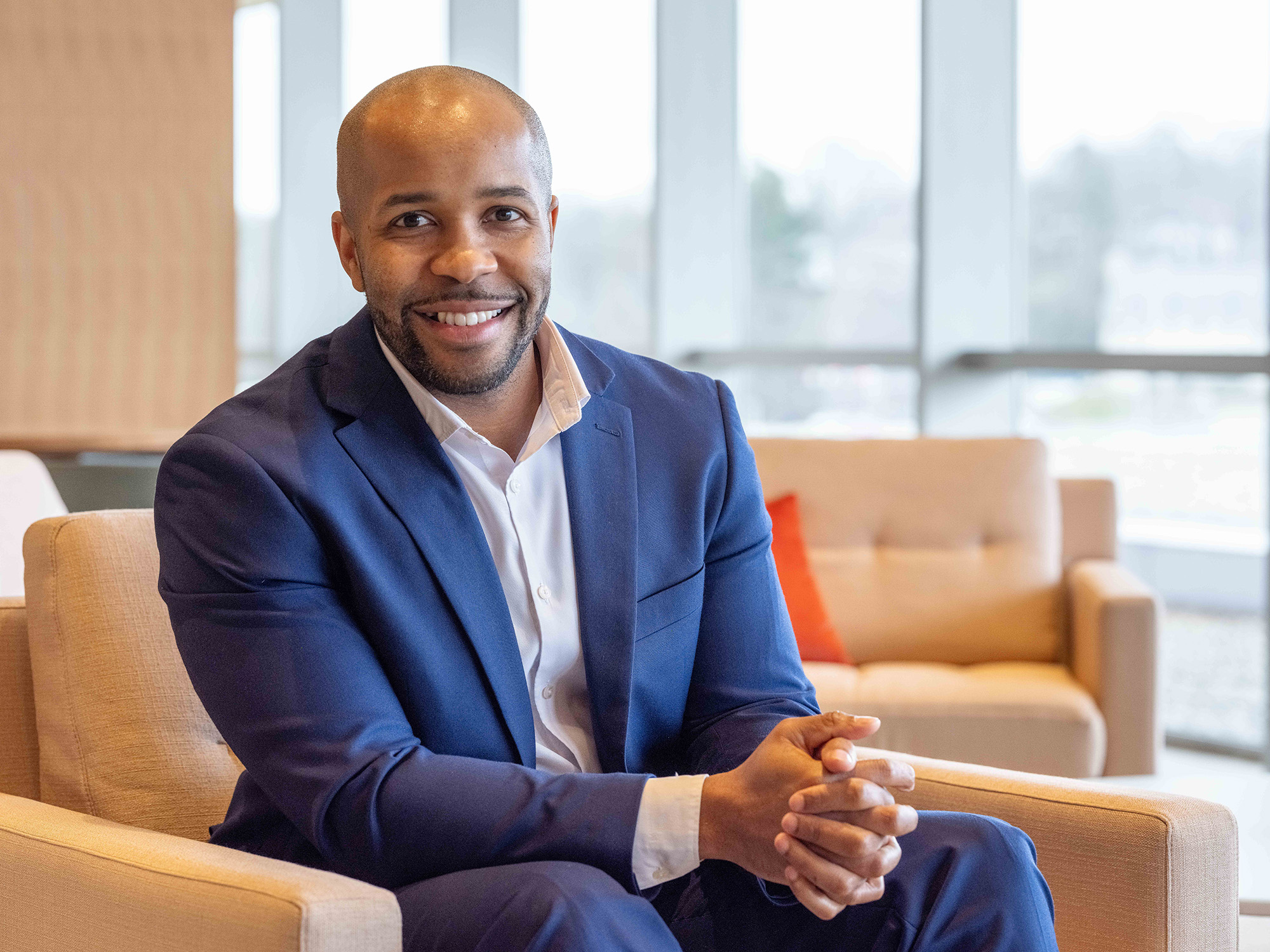
Growing up as a child of musicians, William Menefield was exposed to a wide range of music, from Beethoven and Mozart to John Coltrane, Ella Fitzgerald, and Stevie Wonder. He started formal music training at 5, wrote his first song at 8, became a professional jazz pianist at 12, and released his first album just after high school graduation.
“My dad plays tenor saxophone, and my mom was a violinist and a vocalist as well as a music teacher, so I grew up in music,” says Menefield, a pianist who was recruited from the jazz scene in Atlanta in 2020 to teach at the University of Iowa School of Music. “We had a piano in the house, instruments, CDs, LPs—everything, all kinds of different music. Becoming a musician was a natural progression for me.”
Fierce, written by librettist Sheila Williams and composed by UI jazz studies and piano professor William Menefield, truly is an opera for the 21st century.
The 90-minute, one-act opera, which will be performed at Hancher on April 26 and 27, follows four teenage girls finding identity and purpose in the world as they write their college essays in a high school writers’ workshop. The young women face striking internal challenges—the difficulties of high school popularity and social media, the weight of parental expectations, personal loss, and unstable lives at home—but come together to find community, self-empowerment, and the confidence to embrace new chapters.
Directed by Menefield, the Hancher performances feature an ensemble of UI singers, musicians, and dancers, with production support from the UI School of Music, the Performing Arts Production Unit, and Hancher Auditorium.
So, it’s not too surprising that the assistant professor of jazz studies has described his first opera composition, Fierce, as a “genre salad,” containing hints of reggae, R&B, Afro-Cuban, rock, and more. The production, a commission that premiered with the Cincinnati Opera in 2022, makes its Iowa debut at Hancher Auditorium in April with student cast and crew members.
“With my eclectic musical background, anything and everything can inspire me to compose,” says the Cincinnati native. “I could be thinking something that is more classical, but then my R&B and gospel and jazz influences kick in. I might take two things that don’t normally go together and fuse them. I could be feeling sad and play whatever comes to my ears to help me feel better. I could be feeling happy. All kinds of different things inspire me.”
Just two years after Menefield was hired at Iowa, Fierce was performed at the Cincinnati Opera. He couldn’t have imagined that his new colleagues in academia would encourage, even endorse, such creative collaboration. But School of Music director Tammie Walker and Hancher executive director André Perry attended the performance and promised to produce it on the UI campus.
“A whole lot of operas get one run and that’s it. They’re never performed again,” says Menefield, who is directing the Hancher production. “It’s hard enough to get a first production. The fact that I was invited for this commission in Cincinnati is a huge deal. But to get that second production at Iowa made me think, ‘Maybe we have something here.’”
Menefield recently spoke about Fierce, working with students, and what it means to have his first opera produced at Hancher.
What is Fierce about, and how did you approach your first opera?
I was commissioned by the Cincinnati Opera in 2020 to compose a new opera that celebrated women—it was the 100th anniversary of the women’s suffrage movement and it also happened to be the 100th anniversary of the Cincinnati Opera. Librettist Sheila Williams, an accomplished and celebrated author, sat down on a weekly basis with 10 young ladies between 13 and 18 over a period of nine months and had open conversations about the things they had on their minds, what they were going through, what was important to them—whatever they wanted to talk about. They shared their thoughts on social media, identity issues, toxic home life, and suicide. Then she used the notes from their discussions as the source material for the libretto, creating characters and a narrative. She chose the title Fierce because she realized there are really deep things on the minds of young women, and the opera is about them having this fierce mentality to face their challenges and ultimately overcome them.
“I never imagined myself living in Iowa in the first place—or that this would be the place that supported my compositional career in the way that it has. It’s a big deal.”
William Menefield, assistant professor of jazz studies and piano at Iowa:
- Began his professional jazz piano career at age 12 and released his first album, Big Will Leaps In, right out of high school.
- Has shared the stage with Roy Ayers, Clark Terry, David “Fathead” Newman, Gary Bartz, John Blake, Don Braden, Steve Wilson, Javon Jackson, and a host of other outstanding musicians.
- Participated on the creative team that produced music for the pilot episode of the HBO television series Watchmen.
- Directs the UI Black Pop Music Ensemble.
I was very intentional about not having any preconceived ideas about what the opera would be about. I wanted every note I wrote to be inspired by what I read. I felt all kinds of emotions when I read it, so I tried to listen for what those emotions sounded like. That led me to come up with a plan of how I would approach it. I started with a signature aria for each of the four main characters, music that would be memorable for the audience as well as music that’s easy to extract.
What does it mean to have Fierce performed at Hancher?
It was a really great experience to have my first opera in my hometown of Cincinnati, with so many people I knew coming out to support it. And now, with the second production happening here at the University of Iowa, it’s equally as huge—in a different way. I didn’t imagine that the second production of this opera was going to happen so fast. I was honored that so many people from the University of Iowa came to the premiere. That said a lot to me about the kind of support that I have here at the university. And for them to say, “Hey, we want to do this opera,” and to make good on that so quickly, was amazing. I felt good about what Sheila and I did in writing this piece, but you still never know how people are going to receive it.
I never imagined myself living in Iowa in the first place—or that this would be the place that supported my compositional career in the way that it has. It’s a big deal. It’s my first time stage directing, and I get to do it the way that I envisioned doing it. I get to do all these things that I was seeing when I was writing the music. It’s opened up parts of me that I didn’t even know were there.
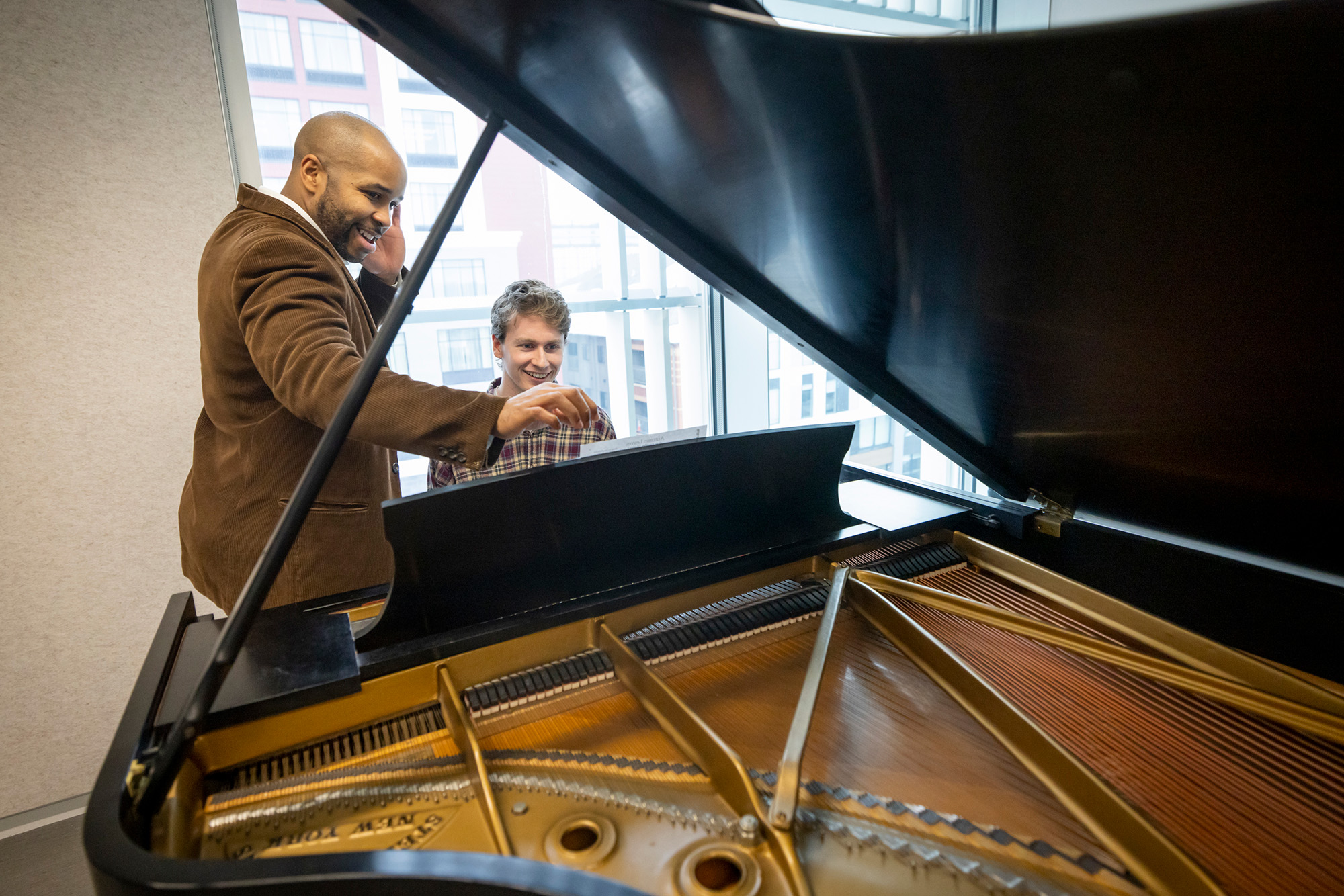
You lead classes by day and rehearsals by night. What do you enjoy most about teaching?
I’m a passionate educator. I get it from my mom. She was a music teacher who retired as an elementary school principal, and I learned at a pretty young age that I was passionate about education, too. The joy I get comes from seeing students grow and finding the best ways to support them so that they know that they’re ready to go do whatever it is they want to do. I want them to feel confident. I also love the relationship building. We need to build trust with one another so that they feel comfortable, because there is a lot of vulnerability in being a student. They’re basically saying, “Here’s this thing I want to do with my life and I’m trusting you to help me with it.” I’ve got to take that seriously. I can’t be playing around because 10 years from now, I don’t want them to think Dr. Menefield ruined their life. No, I want them saying, as they accept their Grammy Award, “I would like to thank Dr. William Menefield for helping me.” That’s what I want.
